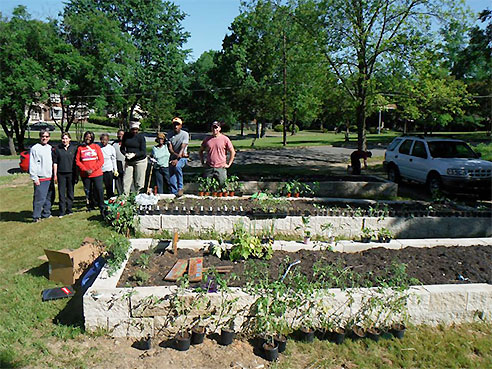 In the two years since the awards began, the University of Alabama at Birmingham Center for Clinical and Translational Science’s Community Health Innovation Award grantees have seen some major successes. Now several new organizations competing for this year’s grants are gearing up to present their final project proposals to a panel of judges in the hope of becoming the next CHIA success story.
In the two years since the awards began, the University of Alabama at Birmingham Center for Clinical and Translational Science’s Community Health Innovation Award grantees have seen some major successes. Now several new organizations competing for this year’s grants are gearing up to present their final project proposals to a panel of judges in the hope of becoming the next CHIA success story.
CHIA is an annual grant competition open to local 501(c)(3) organizations in the Greater Birmingham area that enables participants to seek bold, creative solutions to health challenges their communities face. Applicants work with UAB experts and local businesses to propose and complete a project addressing a public health issue in their communities. Projects are supported by grant funding, ranging from $5,000 to $25,000, awarded by The One Great Community Council, the community engagement arm of the CCTS.
“To date, CHIA has awarded $112,000 in grant funding to nine groups in the Birmingham area,” said Shauntice Allen, Ph.D., program manager in the UAB School of Public Health and director of The One Great Community Council. “Not only have these past awardees improved aspects of their communities, many have successfully leveraged their awards to receive additional funding to support the expansion of their respective programs.”
| CHIA is an annual grant competition open to local 501(c)(3) organizations in the Greater Birmingham area that enables participants to seek bold, creative solutions to health challenges their communities face. Applicants work with UAB experts and local businesses to propose and complete a project addressing a public health issue in their communities. |
One successful project that continues to grow is the Community Carpentry Project, which received a $25,000 CHIA grant in 2013. Carolyn Cauthen, president of Birmingham’s Inglenook Neighborhood, and David VanWilliams, Inglenook Neighborhood secretary and master carpenter, partnered to create the initiative which aims to teach basic carpentry skills to young adults between the ages of 18 and 25. The nascent carpenters did pro bono work in Inglenook, building wheelchair ramps for neighborhood residents, and they also built a storage shed that will be sold at market value to raise additional money for the program. Promoting professionalism, self-sufficiency and gainful employment, the Community Carpentry Project also encourages participants to continue their carpentry education at Lawson State Community College. With support from True Vine Evangelical Church, two have enrolled at Lawson State in the year since it won CHIA support. The Community Carpentry Project began its second year with a new group of 12 participants in September.
Another CHIA success story was the program’s first grantee in 2012, the Norwood Resource Center. The Center proposed to create four community gardens, collectively known as the Norwood Learning Gardens, on three vacant and neglected lots dispersed throughout the Norwood neighborhood and at Norwood Elementary School.
The goal of the project is not simply to create community gardens, but to create a culture of healthy eating and family gardening in a community setting. Each garden is managed by one of four neighborhood volunteers, all of whom have completed the Master Gardener program administered by the Alabama Cooperative Extension Service.
| “We have had some wonderful projects since beginning the CHIA awards, and we are so excited to see what’s to come from the next round of competitors. Participating in the awards process gives residents the opportunity to take notice of health challenges their communities face, and find ways to creatively solve those problems.” |
Community members both young and old tend the gardens’ crops cooperatively; they also reap the rewards at harvest time, sharing in the bounty. Students sell surplus produce at the Norwood Market at the Trolley Stop; money raised supports the Norwood Resource Center and the Norwood Learning Gardens.
“We have had some wonderful projects since beginning the CHIA awards, and we are so excited to see what’s to come from the next round of competitors,” Allen said. “Participating in the awards process gives residents the opportunity to take notice of health challenges their communities face, and find ways to creatively solve those problems.”
Applicants of the third annual CHIA will make presentations to a panel of judges on Wednesday, Sept. 24, at which time they will learn of their awards.